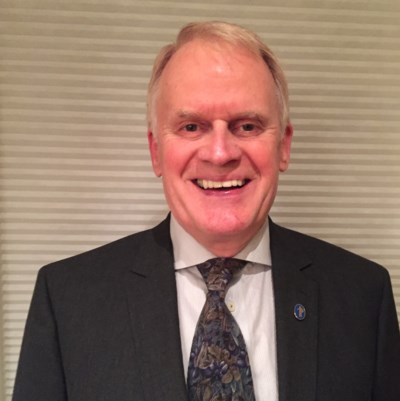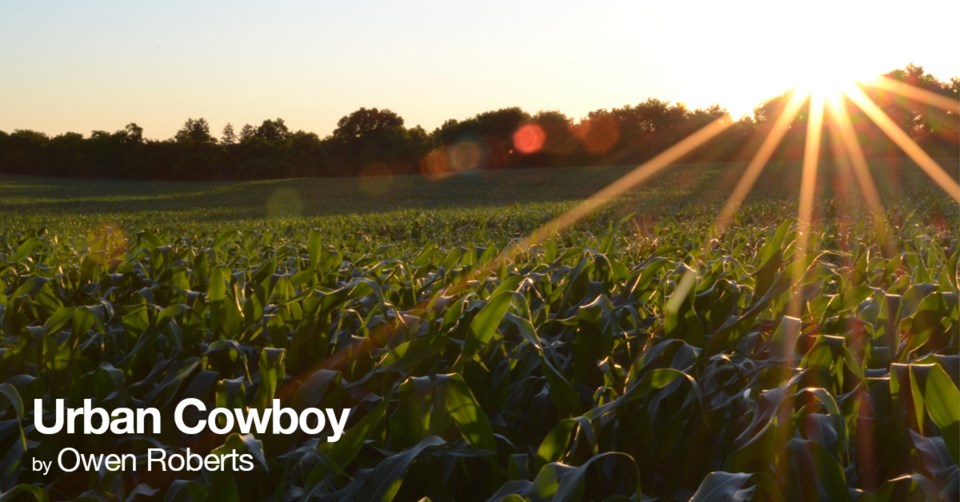Helping farmers be good environmental stewards is a higher calling, one that’s been on Harold Rudy’s plate for decades. And when the Soil Conservation Council of Canada holds its summit on Canadian soil health in Guelph next month, he’ll be recognized for those efforts with an induction into the Canadian Conservation Hall of Fame.
It’s a prestigious appointment. In 1990, the council established the hall of fame to honour Canadians who have made a significant contribution through their dedication to promoting soil conservation in Canada.
And anyone involved in agriculture in Ontario agrees this accolade fits Rudy to a T.
As the council explains, Rudy, a University of Guelph alumnus with both an undergraduate and graduate degree, has earned the respect of peers in government, university research and other organization circles.
Early in his career, he’s worked with what was then the Ontario Ministry of Agriculture and Food (OMAF) as a soil conservation advisor, assisting farmers in all aspects of soil conservation, helping keep the environment clean.
 Harold Rudy, inductee-elect to the Canadian Conservation Hall of Fame. Courtesy Ontario Soil and Crop Improvement Association
Harold Rudy, inductee-elect to the Canadian Conservation Hall of Fame. Courtesy Ontario Soil and Crop Improvement AssociationAnd although people think farmers have just recently come to realize sustainability is important, the truth is that as far back as the mid-1980s they sensed they needed an organization formally and totally focussed on soil conservation matters in he province.
That’s when the Ontario Soil and Crop Improvement Association (OSCIA) was founded, with Rudy as its executive director.
There, according to the council, Rudy lent his expertise in the design and administration of programs where farmers, researchers, extension experts and policy-makers could work together “to affect scientifically based change, with the goal of improving soil management and soil health.”
One of the key outcomes of that collaboration was the Ontario Environmental Farm Plan. It was just what farmers needed – a voluntary way to make improvements in more than 20 key aspects of their operations that would promote environmental sustainability.
Farmers completed their own plan, had it reviewed by a panel of other farmers, researchers and experts like Rudy, and implemented environmental measures, with support from the province. The plan was, and still is, a model for other provinces and jurisdictions everywhere. More than 35,000 Ontario farmers have taken part since 1993.
“OSCIA’s history of success has empowered countless agricultural producers to learn more about how their land management decisions impact on-site sustainability and profitability, and off-site quality of life,” says the council. “[Rudy’s] unbridled drive is to see heightened interaction between researchers and producers in targeting resources to better understand soil health and the role of soil life for optimal farm production and stewardship practices.”
I’ve seen or been in contact with Rudy several times in recent weeks. In one case, he was helping coordinate the highly successful field day for University of Guelph wheat breeding specialist Prof. Ali Navabi at the Elora Research Station. One of this future hall of famer’s roles that day? Making sure the 100 participants could hear what the other experts were saying, thanks to clearly audible portable P.A. system he provided and carried from field plot to field plot all afternoon.
It was exactly the kind of unassuming yet vitally important behind-the-scenes role Rudy has fulfilled all of his career: if you can’t hear what the experts say, communication is lost. Technology transfer comes in many forms, which Rudy is keenly aware of.
Another occasion Rudy and I have met recently was in my office, when he was looking for advice for an editor for his upcoming book The Soil Fixers, a history of soil conservation and developments from the mid-1980s to now. Based on some of the working titles of the chapters, I’m looking forward to reading about all the stops and starts, characters and champions he’s encountered on his journey. His dry and constant sense of humour will make for an entertaining read.
And finally, I’ve drawn on his wise counsel for the 21-week series I’m now writing about agriculture and food for the Toronto Star and Metro News organizations. You can’t have food without soil, and some of the programs the soil and crop improvement association are involved in have captured the public’s attention, particularly one in which Guelph and Trent University biologists work with farmers to identify and save Ontario’s endangered badgers.
Rudy was immersed in environmentalism long before it was trendy. And he’s staying with it, helping farmers and others understand the importance of soil conservation in so many ways. Congratulations hall of famer Harold Rudy.
